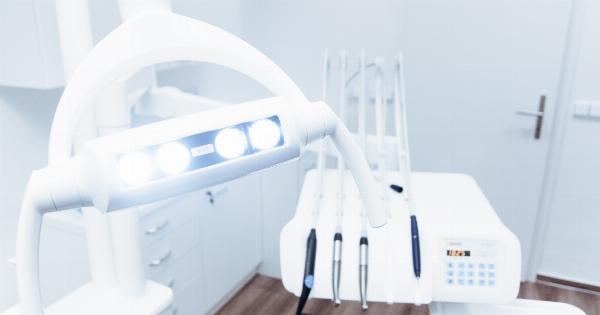Medical imaging exams such as x-rays, ultrasounds, computed tomography (CT) scans, and magnetic resonance imaging (MRI) can be crucial in diagnosing and treating medical conditions.
However, these exams can also be costly, time-consuming, and uncomfortable for patients. Here are some tips to help you maximize the benefits of imaging exams:.
1. Communicate with your healthcare provider
Before undergoing any imaging exam, make sure that you discuss your concerns with your healthcare provider. Ask questions about the procedure, the risks, the benefits, and any necessary preparation.
Be honest about your medical history, allergies, and medications. This can help your healthcare provider to determine whether an imaging exam is necessary, which exam is most appropriate, and how to optimize the results.
2. Choose the right facility
Not all healthcare facilities are created equal when it comes to imaging exams. Some facilities may have newer or more advanced equipment, more experienced technologists, or lower fees.
Make sure that the facility you choose is accredited by a recognized organization such as the American College of Radiology (ACR) or the Intersocietal Accreditation Commission (IAC). You can also ask for recommendations from your healthcare provider, your insurance company, and other patients.
3. Prepare for the exam
Depending on the type of imaging exam you are having, you may need to prepare in advance. For example, if you are having an abdominal CT scan, you may need to fast for several hours before the exam, or drink a special contrast material.
If you are having an ultrasound, you may need to drink water or avoid eating for a period of time. Make sure that you follow the instructions provided to you by the healthcare facility, and inform them if you have any difficulties or questions.
4. Communicate with the technologist
When you arrive at the healthcare facility, you will meet with a technologist who will perform the imaging exam. This is your opportunity to communicate any specific concerns or requests you may have.
For example, if you are claustrophobic, you may request a more open MRI machine or a sedative. If you are pregnant, you may want to ask about the risks to your fetus and the use of shielding.
The technologist can also provide you with information about the timing and duration of the exam, the use of contrast material, and any sensations you may experience.
5. Practice relaxation techniques
Imaging exams can be stressful and uncomfortable, especially if you are in pain or anxious. To help you relax, you may want to practice some relaxation techniques such as deep breathing, visualization, or music therapy.
You can also ask the healthcare facility if they provide amenities such as blankets, pillows, or headphones. If you are particularly anxious, you can ask your healthcare provider for a prescription for a sedative or anti-anxiety medication.
6. Follow up with your healthcare provider
After the imaging exam, you will receive a report from the radiologist who interpreted the images. This report will contain information about your results, any abnormalities, and any recommendations for further testing or treatment.
Make sure that you follow up with your healthcare provider to discuss the results, ask questions, and make a plan for your care. If you have any concerns or questions about the report, don’t hesitate to contact the healthcare facility or your healthcare provider.
7. Be aware of the costs
Imaging exams can vary widely in cost depending on the type, location, and insurance coverage. Before scheduling an imaging exam, make sure that you understand the costs involved and how they will be covered.
You can contact your insurance company to find out about your coverage, copays, deductibles, and out-of-pocket costs. You can also ask the healthcare facility about their fees, payment options, and financial assistance programs. Don’t be afraid to compare costs and negotiate with different facilities if necessary.
8. Advocate for your rights
As a patient, you have the right to high-quality, safe, and compassionate care during any medical procedure, including imaging exams.
You have the right to informed consent, which means that you should be fully informed about the risks and benefits of the exam and give your consent before the exam takes place. You also have the right to privacy, dignity, and respect during the exam, as well as the right to ask questions, express concerns, and receive timely and accurate information about your results.
9. Stay informed
Medical imaging technology is constantly evolving, and new research is being conducted to improve the accuracy, safety, and efficiency of imaging exams.
To stay informed about the latest developments in imaging technology, you can read medical journals, attend conferences, and follow professional organizations such as the American Association of Radiology Technologists (AART) or the Society of Diagnostic Medical Sonography (SDMS). You can also ask your healthcare provider or the healthcare facility for information and resources about imaging exams.
10. Take care of yourself
The most important benefit of imaging exams is the information they provide to help diagnose and treat medical conditions. However, taking care of yourself before and after the exam can also be crucial to your overall health and well-being.
This includes getting enough rest, eating a balanced diet, exercising regularly, managing stress, and following your healthcare provider’s recommendations for any medical conditions you may have. By taking care of yourself, you can help ensure that imaging exams are effective and beneficial for you.





























